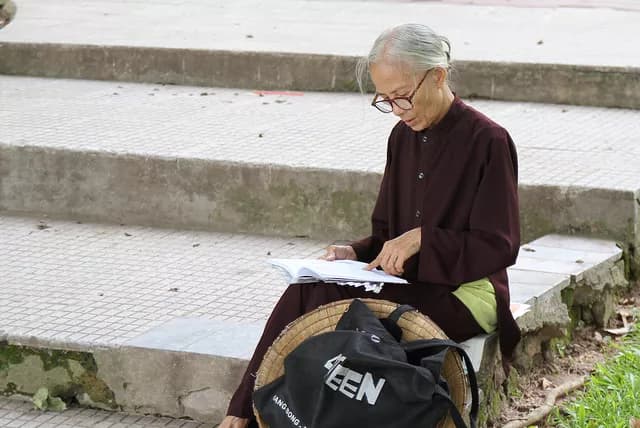
Older First-Time Mothers Are Also More Likely To Live Longer
The average age of a woman giving birth for the first time has risen dramatically in the United States over the past 40 years, driven by factors like education or career. A new study by researchers at University of California San Diego School of Medicine found that women choosing to become first-time mothers later in life may increase their chances of living into their 90s.
The study, published online November 17 in American Journal of Public Health, is the first to look at age at first childbirth in relation to longevity. The researchers found an association between a woman's age at childbirth and parity (the number of times a woman has been pregnant) with survival to age 90.
"We found that women who had their first child at age 25 or older were more likely to live to age 90," said Aladdin Shadyab, PhD, lead author of the study with the Department of Family Medicine and Public Health at UC San Diego School of Medicine. "The findings indicate that women with two to four term pregnancies compared with a single term pregnancy were also more likely to live at least nine decades."
Of the approximately 20,000 participants in the study, 54 percent of women survived to 90 years old. The participants were part of the Women's Health Initiative (WHI), a national longitudinal investigation of women that began in 1991. The women were followed for up to 21 years.
The study also found that women who lived to age 90 were more likely to be college graduates, married, have a higher income and less likely to be obese or have a history of chronic disease.
"Our findings do not suggest that women should delay having a child, as the risk of obstetric complications, including gestational diabetes and hypertension, is higher with older maternal ages. It is possible that surviving a pregnancy at an older age may be an indicator of good overall health, and as a result, a higher likelihood of longevity," said Shadyab. "It is also possible that women who were older when they had their first child were of a higher social and economic status, and therefore, were more likely to live longer."
Shadyab said further research is needed to determine which social factors might explain associations of age at first childbirth and parity with longevity.
"Our findings have several public health implications," said Shadyab. "We hope this is a foundation to help identify targets for future interventions among women in the preconception and family planning phases of their lives, which may improve women's healthy longevity in the long term."
Study co-authors include: Andrea LaCroix, Sonia Jain, UC San Diego; Caroline Macera, Richard Shaffer, Linda Gallo, San Diego State University; Margery Gass, The North American Menopause Society; Molly Waring, University of Massachusetts Medical School; and Marcia Stefanick, Stanford University School of Medicine.
Funding for this research came from the National Institutes of Health (HHSN268201100046C, HHSN268201100001C, HHSN268201100002C, HHSN268201100003C, HHSN268201100004C, HHSN271201100004C).
Materials provided by University of California San Diego Health Sciences. Note: Content may be edited for style and length.
Disclaimer: DoveMed is not responsible for the adapted accuracy of news releases posted to DoveMed by contributing universities and institutions.
Primary Resource:
Shadyab, A. H., Gass, M. L., Stefanick, M. L., Waring, M. E., Macera, C. A., Gallo, L. C., ... & LaCroix, A. Z. (2016). Maternal Age at Childbirth and Parity as Predictors of Longevity Among Women in the United States: The Women’s Health Initiative. American Journal of Public Health, (0), e1-e7.
Related Articles
Test Your Knowledge
Asked by users
Related Centers
Related Specialties
Related Physicians
Related Procedures
Related Resources
Join DoveHubs
and connect with fellow professionals

0 Comments
Please log in to post a comment.